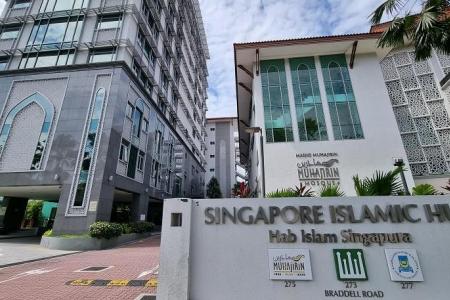New Muslim community endowment fund to be established
A new community endowment fund will be established to allow for a sustainable revenue stream to meet the needs of the Muslim community here, as part of a slew of changes to the Administration of Muslim Law Act (Amla).
The wide-ranging amendments, which were passed in Parliament on Feb 5, also covered changes in areas such as foreign halal certification bodies and Muslim religious schools, enhancing the Islamic Religious Council of Singapore’s (Muis) administration of these sectors.
First announced in 2020, the fund – known as Wakaf Masyarakat Singapura (WMS) – will finance the renewal of mosque leases and mosque maintenance, the development of religious teachers and scholars, and other community programmes.
While traditionally the wakaf – a type of Islamic religious endowment – is created by individual Muslims for specific charitable purposes upon their death, Muis will be empowered to create a wakaf on its own, as part of amendments to Amla.
Enacted in 1966, Amla administers many aspects of Muslim life here.
“The WMS will enable more individuals to bequeath their assets for future generations, and for our Muslim community to remain financially self-reliant and capable to address future needs and challenges,” said Minister-in-charge of Muslim Affairs Masagos Zulkifli in Parliament on Feb 5.
People will be able to donate to WMS by contributing cash or property, or by making Central Provident Fund nominations, Mr Masagos said, adding that the WMS is expected to complement existing community funds such as the Mosque Building and Mendaki Fund.
Noting that many mosques and madrasahs here will face land lease renewals over the next 30 years, Mr Masagos said the WMS will enable Muslims here to prepare early for such needs.
WMS will also act as a reserve fund to support the community in times of crisis, such as the Covid-19 pandemic, he added.
Mr Masagos said the amendment Bill will also enhance Muis’ foreign halal certification bodies (FHCB) scheme by setting out a legal framework for recognising these bodies as having comparable halal certification benchmarks to those of Muis.
“This will provide greater transparency and assurance to our Muslim community on the quality of Muis-recognised FHCB, and provide our Muslim consumers and businesses with greater assurance when purchasing and consuming halal food products,” he said.
In response to questions from various MPs – including Mr Sharael Taha (Pasir Ris-Punggol GRC) and Nominated MP Syed Harun Alhabsyi – on the extent of Muis’ regulation of FHCB, Mr Masagos noted that such bodies will have to undergo mandatory training and assessment to ensure they can meet Singapore’s halal requirements.
FCHB will be placed under an audit and surveillance regime for three years. Those that fail to meet Muis requirements will be suspended and delisted, he added.
Get The New Paper on your phone with the free TNP app. Download from the Apple App Store or Google Play Store now


